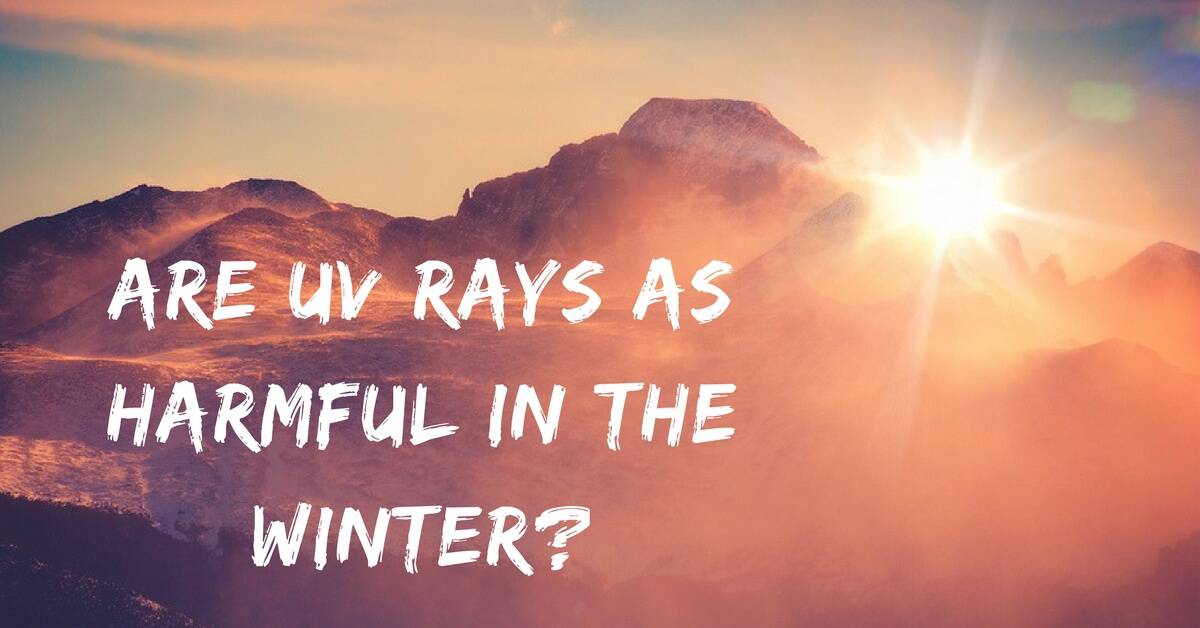- Finding the Right Indoor Plants for Desert Your Home - April 28, 2023
- Common Misunderstanding About Sun Exposure - April 18, 2023
- All about the Arizona Monsoon Season - May 21, 2021
Here in Phoenix, the weather is finally cooling down for us! (Although much more slowly than we would probably like). It’s that time of the year when we can finally snuggle up in comfy sweaters or enjoy a beautiful desert hike without melting.
What does winter weather mean in terms of ultraviolet rays? Does cooler weather mean we can be less stringent on our skin care regime, or worry less about fading of our furniture or drapery? Read on to learn more about UV rays – specifically in the winter.
What are UV rays?
Ultraviolet (UV) rays make up only a small percentage of the sun’s actual rays, however, they are the rays most responsible for damaging effects such as aging, skin cancer, and damaged property. There are a few types of UV rays. UVA rays age skin cells and cause most of the longer-term issues of sun exposure – such as wrinkles and age spots. Although UVA rays are thought to be the cause of some skin cancers, these types of rays are not the biggest culprits of cancer. UVB rays have slightly more energy than UVA rays and they damage skin cells’ DNA directly. It is this damage to DNA that causes most skin cancers. UVB rays are also responsible for most sunburns and are rightfully considered the most dangerous. UVC rays are not often discussed because although they are rays with insurmountable energy, they do not make it through our atmosphere and are therefore not found in sunlight. (https://www.cancer.org/cancer/skin-cancer/prevention-and-early-detection/what-is-uv-radiation.html).
When are UV rays the most harmful?
There are many factors that contribute to how much UV radiation reaches the ground at any given time. Some of the main ones are time of day, season, distance from equator, altitude, cloud cover, and reflection off of surfaces. UV rays are the strongest from 10am to 4pm each day. They are stronger in the spring and summer seasons when each hemisphere is tilted closer to the sun. UV rays are also stronger at higher altitudes and when closer to the equator. It is important to remember that rays also reflect off of surfaces such as snow or water, thus making them stronger and more damaging.
How damaging are UV rays during winter in Phoenix?
The United States Environmental Protection Agency (EPA) puts together a daily UV index for every zip code, each and every day. The index measures how much UV radiation is reaching the ground, in your specific location, and what precautions are needed to keep you safe. The index ranges from 0-11+, with 0 being no risk and 11+ being an extremely high risk for UV damage to yourself and your property. At present (late November), the UV index for Central Phoenix ranges from a 3.1-3.5 over the course of the next week. When UV rays are at this level, the EPA recommends using sunscreen at an SPF of 30 or higher, wearing a hat and sunglasses, and staying in the shade during midday hours. While this UV index is not quite as high as it is in the summer, it is still important to protect yourself from these harmful rays.
How can I protect myself from UV radiation?
No matter the season, it is important to stick to your daily skin protection regime. It is recommended to wear sunscreen with an SPF of 30 or higher each and every day. Additionally, your sun screen should be zinc based. Zinc-based sun screen is the best for preventing wrinkles and sun spots. Don’t forget to apply to your hands or other areas of skin that are exposed. If you drive often, be cognizant of protecting the left side of your face from the sun by using a vehicle solar screen or keeping additional sun screen in your center console. It is also good practice to wear hats and sunglasses daily!
How CC Sunscreens can help
At CC Sunscreens, we care about you. We care about protecting you, your family, your belongings, and your wallet from the sun’s harmful UV rays. Reach out to our friendly team today to learn how protective window solar screens or patio shades can help you rest a little easier in the sunshine state. You’ll be able to truly relax, knowing your family and belongings are safe and protected – regardless of the weather or season.

